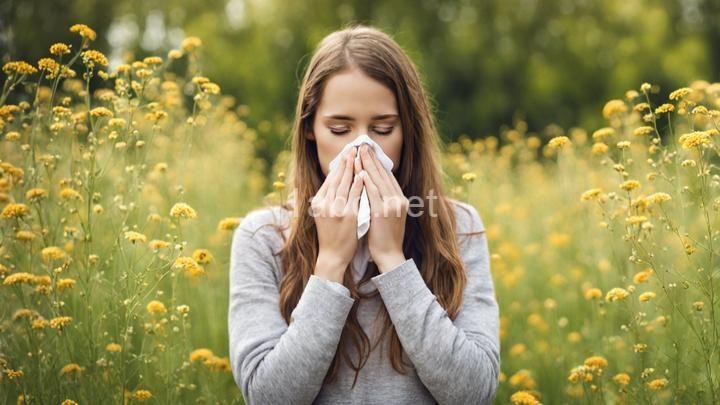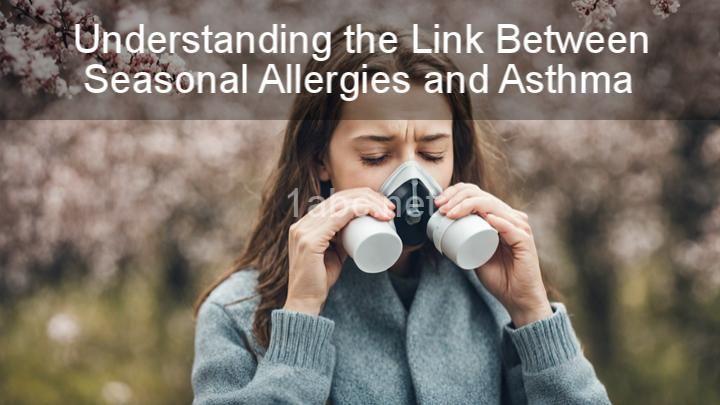7 Essential Tips for Living an Allergen-Free Lifestyle

Introduction:
Living with allergies can be a daily struggle, affecting not only our physical health but also our overall well-being. From sneezing and itching to severe allergic reactions, allergies can significantly impact our quality of life. However, by adopting an allergen-free lifestyle, we can minimize exposure to allergens and take control of our health. In this blog post, we will explore seven essential tips to help you navigate the challenges of living with allergies and create a safe and comfortable environment for yourself.
I. Know Your Allergens:
The first step to living an allergen-free lifestyle is to identify your specific allergens. Allergens can be found in various forms, including common food allergens like peanuts, dairy, and shellfish, as well as environmental allergens such as dust mites, pollen, and pet dander. Understanding your allergies is crucial in effectively managing them.
Consider undergoing allergy tests or keeping a detailed record of your reactions to pinpoint your specific triggers. This knowledge will empower you to make informed decisions about your lifestyle choices and take the necessary precautions.
When it comes to packaged foods, navigating ingredient labels can be overwhelming. Look out for hidden allergens by familiarizing yourself with alternative names for common allergens. For example, milk can be listed as casein or whey, while gluten may be referred to as wheat protein or modified food starch. By being vigilant and reading labels carefully, you can make safer choices for your diet.
II. Create an Allergy-Friendly Home:
Maintaining a clean and allergen-free home is essential for managing allergies effectively. Dust mites, pet dander, and mold are common indoor allergens that can trigger allergic reactions. To reduce these allergens, establish a regular cleaning routine that includes dusting, vacuuming, and washing bedding and curtains frequently.
Invest in hypoallergenic bedding, such as allergen-proof mattress covers and pillows, to create a barrier against dust mites. Ensure proper ventilation in your home to minimize mold growth and improve indoor air quality. Consider using air purifiers with HEPA filters to remove airborne allergens.
III. Plan Your Meals Carefully:
Living with food allergies requires careful meal planning. Begin by identifying alternative ingredients that can replace common food allergens in your diet. For example, if you are allergic to dairy, you can opt for plant-based milk or dairy-free alternatives in recipes.
To ensure a balanced diet, focus on incorporating a variety of fruits, vegetables, whole grains, and lean proteins. Explore new cooking methods, such as grilling or roasting, to enhance the flavors of allergen-free ingredients. Experiment with herbs and spices to add depth and complexity to your dishes.
IV. Communicate with Others:
Open communication about your allergies is crucial, especially with family members, friends, and colleagues. It can be challenging to navigate social situations, but by effectively communicating your dietary restrictions or environmental needs, you can foster understanding and support.
When dining out or attending social events, research restaurants or venues in advance to ensure they can accommodate your allergies. Don't hesitate to inform hosts about your allergies when invited to their homes. By being proactive and communicating your needs, you can minimize the risk of accidental exposure to allergens.
Additionally, take the opportunity to educate others about allergies. By sharing your experiences and knowledge, you can help create a more inclusive and supportive environment.
V.
Be Prepared Outside Your Home:
Managing allergies outside your home requires careful planning and preparation. If you have severe allergies, always carry your prescribed medications, such as antihistamines or an epinephrine auto-injector, with you. This will allow you to respond promptly to any allergic reactions.
When dining out, inform the waitstaff about your allergies and ask about the ingredients in dishes. It's essential to be assertive and advocate for your needs.
Alternatively, consider hosting gatherings at your home or suggesting allergy-friendly activities to friends and family. This way, you can have better control over the allergen exposure and still enjoy quality time together.
VI. Seek Support:
Living with allergies can be challenging, but you don't have to face it alone. Seek support from healthcare professionals, such as allergists or dietitians, who can provide personalized guidance and advice. They can help you develop strategies to manage your allergies and ensure you are meeting your nutritional needs.
Joining local or online allergy support groups can also be beneficial. Connecting with others who face similar challenges can provide a sense of belonging and an opportunity to exchange tips and experiences. Remember, you are not alone in this journey.
VII. Stay Positive and Persistent:
Living an allergen-free lifestyle may present difficulties at times, but it's important to stay positive and persistent. Accept that there may be setbacks along the way, but with time, effort, and support, managing your allergies will become more manageable.
Celebrate your victories, no matter how small. Each step you take towards an allergen-free lifestyle is a step towards better health and well-being. Stay focused on your goals and remind yourself of the benefits of living without constant allergic reactions.
Conclusion:
Living an allergen-free lifestyle requires dedication and effort, but the rewards are worth it. By knowing your allergens, creating an allergy-friendly home, planning your meals carefully, communicating with others, being prepared outside your home, seeking support, and staying positive, you can take control of your allergies and improve your overall well-being.
Remember, you are not alone in this journey. Reach out to healthcare professionals, support groups, and your loved ones for guidance and encouragement. Share your experiences and continue learning about allergy management. Together, we can create a more inclusive and understanding world for individuals with allergies.
If you have any questions or would like to share your own experiences, feel free to leave a comment below. Let's support each other on this allergen-free journey!
FREQUENTLY ASKED QUESTIONS
What is an allergen-free lifestyle?
An allergen-free lifestyle refers to a way of living that avoids exposure to substances known as allergens that can trigger allergic reactions in certain individuals. Allergens are typically harmless substances that can cause an allergic response in people who are sensitive or allergic to them. Common allergens include pollen, dust mites, pet dander, certain foods, insect venom, and certain medications.Living an allergen-free lifestyle involves taking steps to minimize or eliminate contact with these allergens. This may include avoiding certain foods or ingredients that are known to cause allergic reactions, such as peanuts, milk, eggs, or gluten. It may also involve creating an allergen-free environment at home by keeping it clean and free of dust, using hypoallergenic bedding, and avoiding exposure to pets or other allergens.
For individuals with severe allergies, an allergist may recommend carrying medication, such as an epinephrine auto-injector, to manage allergic reactions in case of accidental exposure. It's important to note that an allergen-free lifestyle can vary depending on the specific allergies a person has and the severity of their reactions.
Ultimately, the goal of living an allergen-free lifestyle is to minimize the risk of allergic reactions and improve the overall quality of life for individuals with allergies. It may require some adjustments and vigilance, but with proper management and support, it is possible to lead a fulfilling and allergen-free life.
How can an allergen-free lifestyle benefit me?
An allergen-free lifestyle can bring several benefits to your overall well-being. By avoiding allergens that trigger negative reactions in your body, you can experience relief from symptoms such as sneezing, coughing, itching, and congestion. This can significantly improve your quality of life, allowing you to engage in daily activities without the discomfort and inconvenience caused by allergies.Furthermore, an allergen-free lifestyle may also contribute to better respiratory health. Allergens, such as pollen, dust mites, and pet dander, can irritate the respiratory system and exacerbate conditions like asthma. By eliminating exposure to these allergens, you can potentially reduce the frequency and severity of asthma attacks, leading to improved lung function and easier breathing.
In addition to physical benefits, an allergen-free lifestyle can have a positive impact on your mental and emotional well-being. Allergies can be frustrating and draining, both physically and mentally. By managing your allergen exposure, you can alleviate stress and anxiety associated with allergy symptoms. This can enhance your mood, increase your energy levels, and promote a greater sense of overall happiness and well-being.
Lastly, adopting an allergen-free lifestyle can encourage you to make healthier choices in your diet and lifestyle. Many allergens are found in processed foods, which are often high in sugar, unhealthy fats, and artificial additives. By avoiding these allergens, you may naturally gravitate towards more wholesome and nutritious options, leading to improved dietary habits and better overall health.
Remember, it is important to consult with a healthcare professional or allergist to determine which allergens you should avoid and to develop a personalized allergen-free plan that suits your specific needs and circumstances.
What are the essential tips for living an allergen-free lifestyle?
Living an allergen-free lifestyle can be challenging, but with a few essential tips, you can minimize your exposure to allergens and enjoy a healthier life. Here are some key tips to help you live allergen-free:
-
Identify your allergens: The first step is to determine what triggers your allergies. Consult with an allergist to undergo appropriate tests and identify the specific allergens that affect you. This knowledge will guide you in making necessary lifestyle changes.
-
Keep your home clean: Regularly clean your living space to eliminate dust mites, pet dander, and other allergens. Use a vacuum cleaner with a HEPA filter, wash bedding frequently in hot water, and consider using allergen-proof covers for mattresses and pillows.
-
Control humidity levels: Mold thrives in humid environments, so it's crucial to maintain proper humidity levels in your home. Use dehumidifiers in damp areas, such as basements, and ensure proper ventilation in bathrooms and kitchens.
-
Create a pet-free zone: If you're allergic to pet dander, consider keeping pets out of certain areas in your home, especially the bedroom. Regularly groom and bathe your pets to minimize allergens, and avoid contact with other people's pets if they trigger your allergies.
-
Be mindful of your diet: Food allergies can significantly impact your quality of life. Be cautious about the ingredients and labels of packaged foods, and consider cooking from scratch to have better control over what you consume. If you have severe food allergies, inform restaurants about your allergies when dining out.
-
Manage outdoor allergens: Pollen, grass, and other outdoor allergens can be hard to avoid. Check the pollen forecast before planning outdoor activities and try to limit your time outside during peak allergy seasons. When you come back indoors, remove your shoes and change your clothes to minimize bringing allergens inside.
-
Use hypoallergenic products: Opt for hypoallergenic cleaning products, soaps, and cosmetics that are specifically formulated to minimize allergic reactions. Read labels carefully and choose fragrance-free options whenever possible.
-
Seek professional help: If your allergies persist or worsen despite your efforts, consult with an allergist or immunologist. They can provide personalized advice, prescribe medication if needed, and recommend immunotherapy options to help desensitize your immune system.
Remember, everyone's allergies are unique, so it's essential to find the strategies that work best for you. With these essential tips and some trial and error, you can lead an allergen-free lifestyle and minimize the impact of allergens on your daily life.
How can I identify my specific allergens?
Identifying specific allergens can be a crucial step in managing your allergies. Here are some methods that can help you determine your specific triggers:
-
Keep a detailed allergy diary: Record your symptoms, the time they occur, and any potential triggers you suspect. This can help you identify patterns and narrow down the list of potential allergens.
-
Consult with a healthcare professional: An allergist or immunologist can perform tests to determine your specific allergens. Skin prick tests, blood tests, and patch tests are commonly used to identify allergens.
-
Elimination diet: If your allergies are suspected to be food-related, an elimination diet can help identify specific food triggers. Under the guidance of a healthcare professional, you eliminate certain foods from your diet and gradually reintroduce them to observe any allergic reactions.
-
Environmental exposure: If your allergies are related to environmental factors such as pollen or dust mites, monitoring your exposure to different environments can help pinpoint specific triggers. Pay attention to your symptoms after spending time outdoors or in different indoor environments.
-
Allergy testing kits: There are also at-home allergy testing kits available that can provide insights into potential allergens. However, it's important to note that these kits may not be as accurate as tests conducted by healthcare professionals.
Remember, identifying specific allergens may require a combination of methods and the guidance of a healthcare professional. By understanding your triggers, you can take proactive steps to avoid them and manage your allergies effectively.




